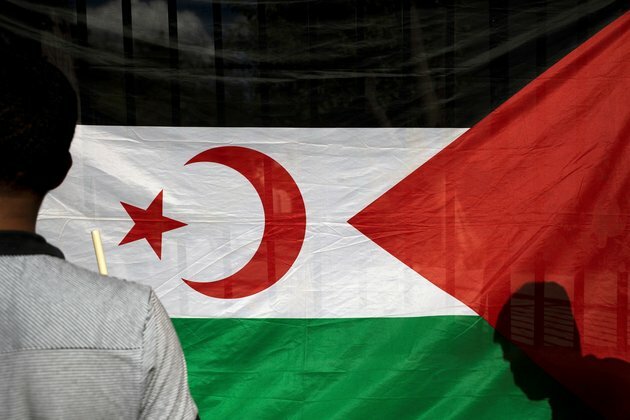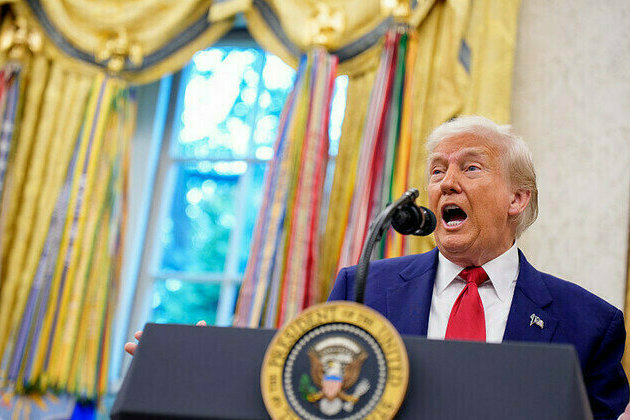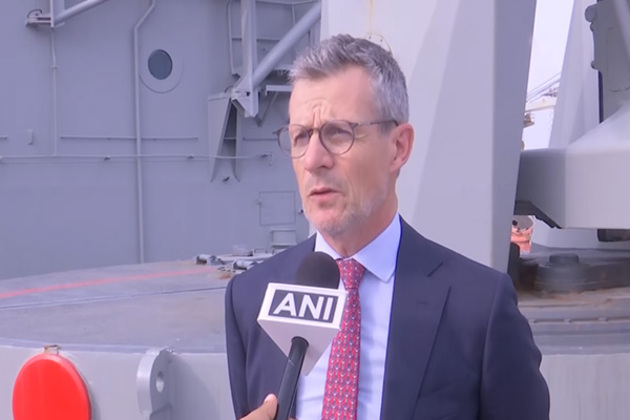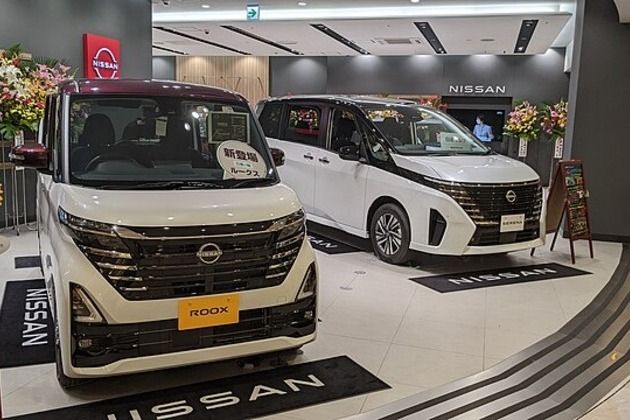Morocco and Western Sahara: a decades-long war of attrition
The Conversation
19 Sep 2019, 20:04 GMT+10

It's been more than 40 years since Morocco claimed sovereignty over Western Sahara, setting off a conflict that seems no closer to resolution.
In 1975 Spain abandoned its colonies in North Africa, with the exception of the territories of Ceuta and Melilla. Morocco stepped in to claim sovereignty over Western Sahara, a territory nearly its size on its southern border. In doing so, it invoked ancestral cultural and political ties.
The Polisario, a politico-military organisation first created to fight off Spain, opposed Morocco's claim. The Sahrawi Arab Democratic Republic (SADR) was proclaimed in 1976 by the Polisario to embody its independence project. While the SADR is not an internationally recognised state, it continues to symbolically represent the Sahrawis' self-determination endeavour.
Years of military affront between Morocco and the Polisario followed, leading to Morocco controlling 80% of the territory until the United Nations (UN) intervened. The conflict pushed most Sahrawis to seek refuge in Algeria, near the town of Tindouf, where they settled in camps organised by the Polisario and partly funded by the UN. 125,000 people still live there to this day. In the parts of the territory controlled by Rabat, Sahrawis face systematic repression by the authorities. Demonstrations supporting Western Sahara's self-determination are not permitted.
The UN set up the Mission for the Referendum in Western Sahara (MINURSO) in 1991 to halt the conflict by imposing a ceasefire. It also committed to organise a referendum of self-determination for the Sahrawis. The ceasefire has held, but there still has not been a referendum.
At first glance, it would seem like nothing has changed since 1991. Yet, things have been slowly and discreetly evolving in recent years at Morocco's behest. Western Sahara is thus not a case of frozen conflict - but rather, of a war of attrition. I have explored elements of Morocco's push to dominate the narrative about Western Sahara as part of my research.
An indirect war of attrition
While no one has died because of military clashes since 1991, the infighting has continued by other means. As diplomacy scholar R. Joseph Huddleston has written:
Morocco's tactics have centred on diplomacy. It has worked hard in recent years to gather international support for its Autonomy Plan, submitted to the UN Secretary-General in 2007. This would prevent the creation of an independent Western Sahara by turning it into an autonomous region within the Kingdom of Morocco. The plan received the immediate support of the international community, starting with the UN Security Council.
Morocco is also trying to diminish international support for the Sahrawis. Western Sahara and the Polisario enjoy the backing of numerous human rights groups around the globe. Rabat hopes it can push those who oppose to reconsider their options in favour of Western Sahara becoming an autonomous region, and weakening the possibility of changes being made to its Autonomy Plan.
Gathering regional and international support
One of Morocco's biggest diplomatic steps was reintegration into the African Union (AU) in 2017. It left the body's predecessor, the Organisation of African Unity, in 1984 after the SADR was admitted as a member. Since its return, Rabat has managed to garner support from 28 member states to push (unsuccessfully, so far) for the SADR's expulsion.
This reintegration has happened despite the fact that Morocco's sovereignty claim over Western Sahara is contrary to the AU's protocols, which support the principle of territorial integrity. The AU struggles to implement its own directives, and Morocco is taking advantage of this.
Since 2016, King Mohammed VI of Morocco has been personally active in enhancing his country's economic presence throughout Africa. He's visited more than a dozen states, mostly located in sub-Saharan African, and secured trade deals and foreign direct investment. Banks, telephone and insurance companies have expanded their services beyond the national borders.
Through this strategy, the kingdom has been gathering continental support, primarily from Francophone African states. Once investment or enhanced trade deals were signed, states withdrew their recognition of the SADR.
This strategy also expands beyond the continent. El Salvador, Barbados and several more countries have withdrawn their support for the SADR in recent years.
At the UN, Morocco has used its institutional involvement, particularly by threatening to withdraw its peacekeepers deployed around the world, to dominate and direct discussions about Western Sahara.
In 2016, following a visit to the Sahrawi refugee camps in Algeria, Ban Ki-Moon declared that Morocco occupied Western Sahara. This sparked one of the most important diplomatic crises involving a UN Secretary-General in the organisation's history. He was forced to apologise.
An uncertain future
In parallel, the Polisario's position has been growing uncertain. It has relied on Algerian support for decades and, while it is likely that Algiers will continue to support the Sahrawis' self-determination case, it is unclear how far it is willing to go. Algeria is, after all, facing its own political crisis.
And impatience is growing within the Polisario, whose confidence in the UN peace process seems to be at its lowest. The future of the movement is unsure. The old guard is likely to soon give way to younger leaders, who might prefer to take up arms for their cause. It is unlikely they would win against the Moroccan army.
All things considered, Morocco's Autonomy Plan - with some modifications, including of its name - appears to be the most viable solution to the conflict. It has the potential to combine both parties' demands. Morocco could get sovereignty over the region and the Sahrawis could exert their self-determination.
But it cannot be implemented as presented. The plan does not yet offer sufficient guarantees in terms of political rights and representation to the Polisario for it to agree. As much as the international community hopes for the termination of the conflict, it must refrain from opting for an easy fix.
As the war of attrition seems to be playing to Morocco's advantage, the window of opportunity for the conflict to be resolved through a negotiated agreement is closing. But an imposed solution would not guarantee lasting stability in the region.
Author: Flora Pidoux - PhD candidate, UniversitУТЉ de MontrУТЉal 
 Share
Share
 Tweet
Tweet
 Share
Share
 Flip
Flip
 Email
Email
Watch latest videos
Subscribe and Follow
Get a daily dose of Germany Sun news through our daily email, its complimentary and keeps you fully up to date with world and business news as well.
News RELEASES
Publish news of your business, community or sports group, personnel appointments, major event and more by submitting a news release to Germany Sun.
More InformationEurope Business
SectionVolvo cuts 3,000 jobs amid trade tensions and economic uncertainty
FRANKFURT, Germany: Volvo Cars, based in Sweden, is cutting 3,000 jobs to reduce costs as the automobile industry struggles with trade...
Volvo CEO: Customers could bear cost of rising US tariffs
STOCKHOLM/DETROIT: Volvo Cars customers will likely bear the brunt of increasing trade tariffs, CEO Hakan Samuelsson said this week,...
CEO says health push weakened Nestle, vows return to F&B roots
VEVEY, Switzerland: Nestle is realigning its focus on its core food and beverage operations after expanding into areas like health...
Trumps trade war has cost firms $34 billion Reuters
Companies in the US, Europe and Japan have reported lost sales and higher costs due to the erratic nature of the tariffs Multi-national...
"Perpetrators of this attack should be brought to justice," EU Envoy to India says
Mumbai (Maharashtra) [India], May 30 (ANI): Herve Delphin, the Ambassador of the Delegation of the European Union to India, affirmed...
Intercontinental Legends Championship: Gibbs' African Lions defeat Asian Kings by 6 wickets
Greater Noida (Uttar Pradesh) [India], May 30: African Lions on Thursday secured an easy six-wicket win over the Asian Kings in the...
Europe
SectionBoots Ireland admits to breaking pricing laws at Black Friday sale
DUBLIN, Ireland: Boots Ireland has admitted to breaking pricing laws during a Black Friday sale in 2023, leading to an investigation...
Volvo cuts 3,000 jobs amid trade tensions and economic uncertainty
FRANKFURT, Germany: Volvo Cars, based in Sweden, is cutting 3,000 jobs to reduce costs as the automobile industry struggles with trade...
Amid losses, Nissan bets on e-Power hybrid to revive US sales
YOKOSUKA, Japan: Facing mounting losses and global restructuring, Japan's Nissan Motor Corp. is turning to its unique e-Power hybrid...
ICCL gets approval to sue Microsoft in Ireland over data breaches
DUBLIN, Ireland: An Irish High Court judge has allowed the Irish Council for Civil Liberties (ICCL) to begin a class action-style lawsuit...
French farmers jam Paris roads in push for eased regulations
PARIS, France: French farmers brought traffic to a crawl around Paris and gathered outside the National Assembly on May 26, using their...
Amid trade tensions, France, Vietnam ink deals worth $10 billion
HANOI, Vietnam: Amid shifting global trade dynamics and growing concerns over U.S. tariffs, France and Vietnam have signed more than...











